Dreaming of a furry friend but dreading the constant vacuuming? You’re not alone! Many dog lovers are searching for small, cute companions that don’t leave a trail of hair everywhere. Luckily, there’s a fantastic selection of small dog breeds that shed minimally or not at all, making them ideal for allergy sufferers or anyone who prefers a cleaner home. Let’s explore some of the most popular and charming options.
Top Small Dog Breeds That Don’t Shed (Or Shed Very Little)
Here’s a curated list of small, cute dog breeds known for their low-shedding coats:
Affenpinscher
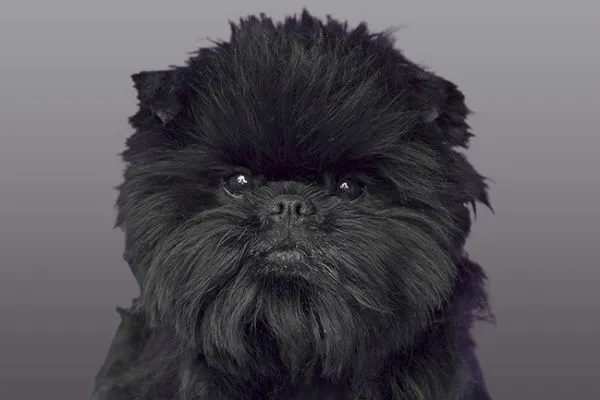 affenpinscher
affenpinscher
The Affenpinscher, meaning “monkey-like terrier,” is a small dog with a big personality. Don’t let their toy size fool you; these intelligent pups are fearless and make excellent watchdogs. A significant bonus? Their wiry coat sheds very little and has minimal doggy odor. A quick brush a couple of times a week is all it takes to maintain their shaggy-chic look. If you’re looking for a low-maintenance, humorous companion, the Affenpinscher might be your perfect match. Before getting one, you might want to show me a picture of a terrier dog.
Basenji
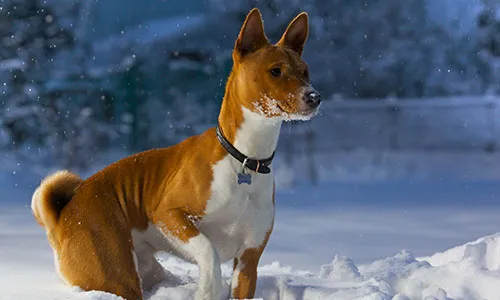 basenji
basenji
For hound lovers who aren’t fans of the typical hound odor and shedding, the Basenji is a fantastic alternative. These unique dogs shed minimally, and their short, fine coat needs only occasional brushing. Basenjis are also known for being quiet, making them great apartment dogs, provided they get enough daily exercise and mental stimulation.
Bichon Frise
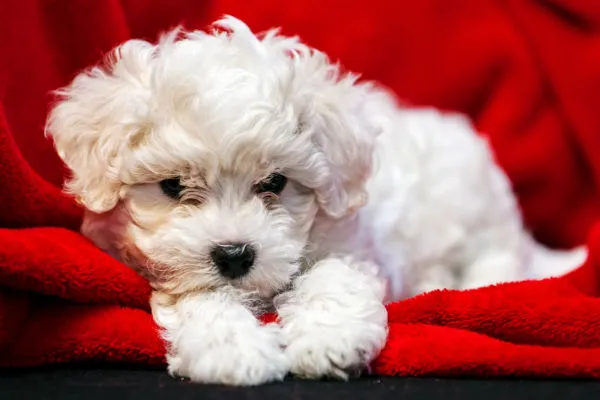 bichon frise
bichon frise
The Bichon Frise is a quintessential non-shedding small dog breed. Their playful and affectionate nature makes them an excellent choice for people with allergies. However, their beautiful white coat requires regular grooming, brushing, and occasional baths to keep them looking their best. Think of it as a trade-off: less shedding, more grooming.
Bolognese
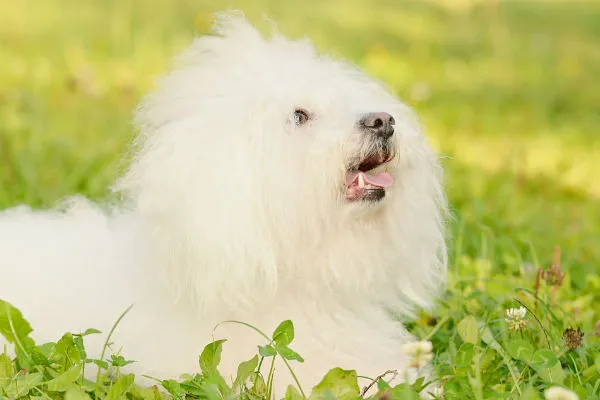 bolognese
bolognese
Similar to the Bichon Frise, the Bolognese boasts a fluffy coat composed of hair rather than fur. This means minimal shedding! However, daily grooming is crucial to prevent mats and keep their coat looking its best. These lovable lap dogs thrive on attention and make wonderful companions.
Brussels Griffon
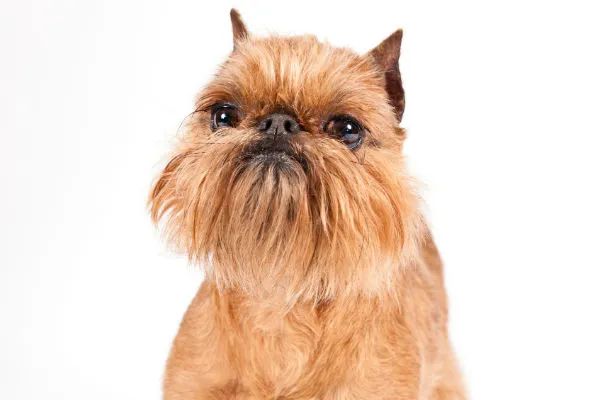 brussells griffon
brussells griffon
Despite their small stature, Brussels Griffons are surprisingly robust and don’t require constant pampering. Both smooth-coated and rough-coated varieties shed very little. A daily walk and indoor playtime are usually sufficient to meet their exercise needs. These loyal little dogs do best with families who are frequently home.
Chinese Crested
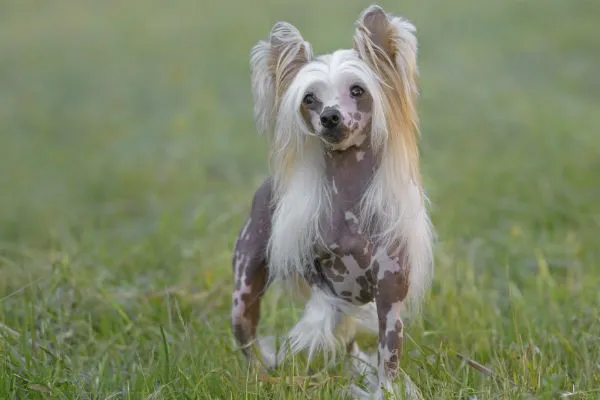 chinese crested
chinese crested
For those truly committed to avoiding shedding, the Chinese Crested is an intriguing option. They come in two varieties: hairless and powderpuff. Hairless Cresteds have hair only on their head, tail, and feet, while the powderpuff has a soft coat that sheds very minimally. Hairless breeds require extra skin care, including protection from the sun and cold.
Coton De Tulear
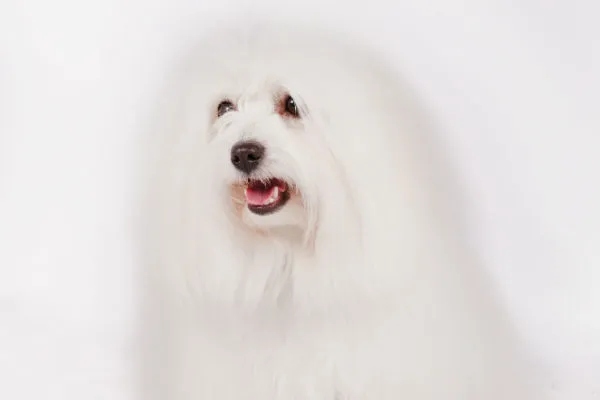 coton de tulear
coton de tulear
The Coton de Tulear is known for its long, fluffy, hypoallergenic coat, making it a popular choice for allergy sufferers. While they require daily grooming to maintain their beautiful coat, their gentle and lighthearted personalities make the effort worthwhile.
Havanese
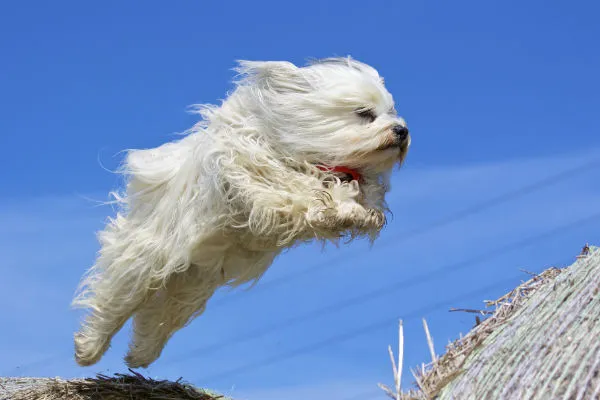 havanese
havanese
Originating from Cuba, Havanese dogs offer both spunky charm and a low-shedding coat. Weekly brushing and regular baths are necessary to keep their coat clean and healthy. These playful dogs thrive on interaction and make excellent family pets.
Maltese
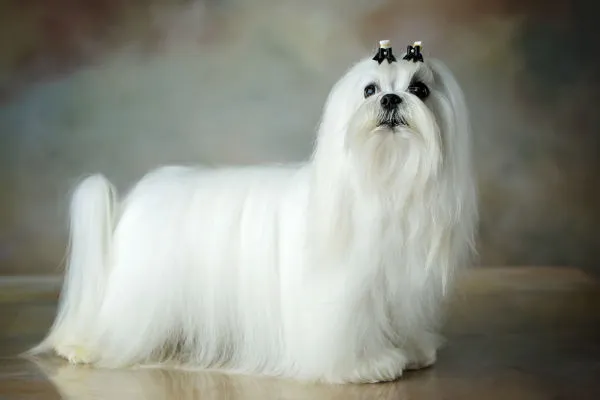 maltese
maltese
Maltese dogs have been charming humans for millennia. Their long, white coats shed very little, making them ideal lap dogs. Regular brushing is essential to prevent mats, and occasional baths keep their silky hair clean and bright. Before getting one, you might want to see different kinds of terrier dogs with pictures.
Lhasa Apso
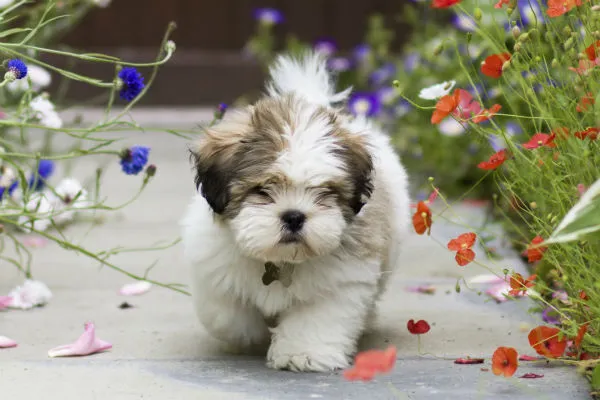 lhasa apso
lhasa apso
This small breed from Tibet makes an excellent companion. Lhasa Apsos don’t shed, but their long coats require maintenance. Many owners opt for a “puppy cut” to simplify grooming. These calm yet playful dogs enjoy both brisk walks and relaxing in their owner’s lap.
Miniature Schnauzer
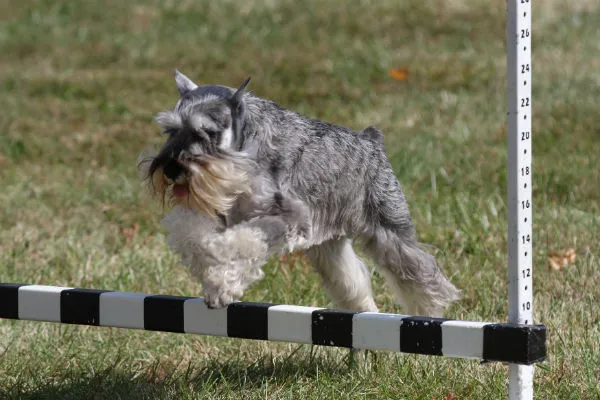 miniature schnauzer
miniature schnauzer
The Miniature Schnauzer is an intelligent, trainable, and cheerful little dog. This terrier sheds very little, and their adaptability makes them suitable for both city and country living. Weekly brushing and regular grooming are essential to maintain their distinctive appearance. You can explore other dog breeds list with pictures and price before making a decision.
Poodle (Toy & Miniature)
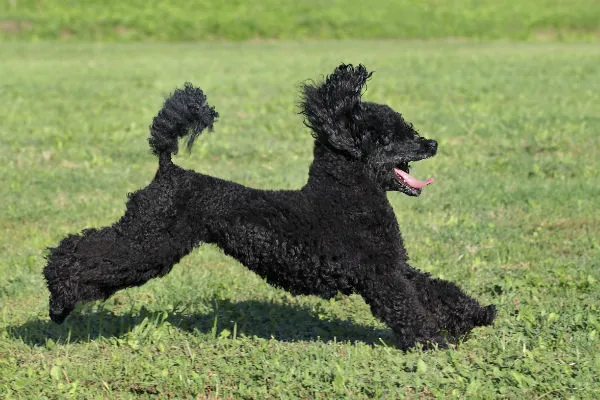 poodle
poodle
Poodles are often the first breed that comes to mind when discussing non-shedding dogs. Miniature and Toy Poodles offer these qualities in petite, intelligent packages. All Poodles are highly intelligent and easy to train. Their unique coat requires regular grooming to prevent matting.
Scottish Terrier
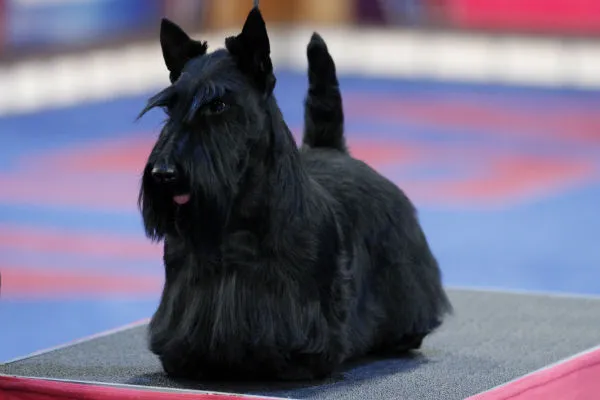 scottish terrier
scottish terrier
The Scottish Terrier, or Scottie, is a terrier breed known for its boldness and big personality. Their wiry, weather-resistant coat sheds very little, although regular brushing, grooming, and occasional hand-stripping are necessary to maintain its health and appearance.
Shih Tzu
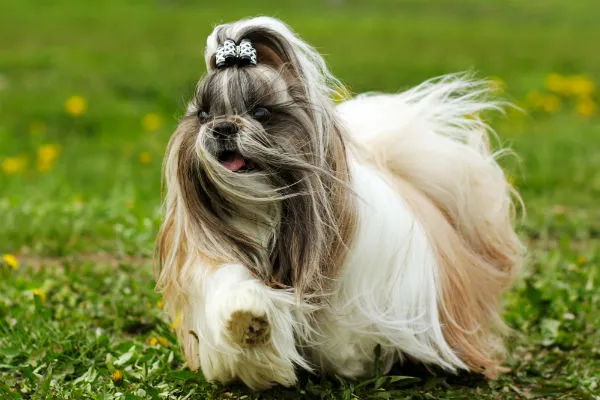 shitzhu
shitzhu
The Shih Tzu, a favored house pet of the Tang Dynasty, has a long and regal history. Their long, silky hair is very low-shedding and looks exceptionally regal when brushed out. This toy breed is sturdy and lively, with a gentle and trusting nature.
West Highland White Terrier
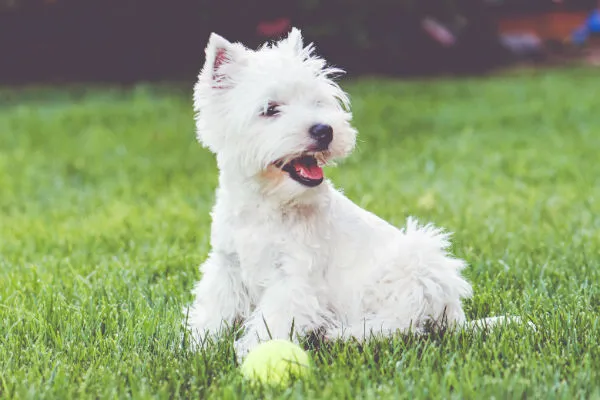 west highland terrier
west highland terrier
The coarse, white hair of the West Highland White Terrier, affectionately known as Westies, sheds very little. This intelligent, loyal, and happy breed is curious and entertaining.
Xoloitzcuintli
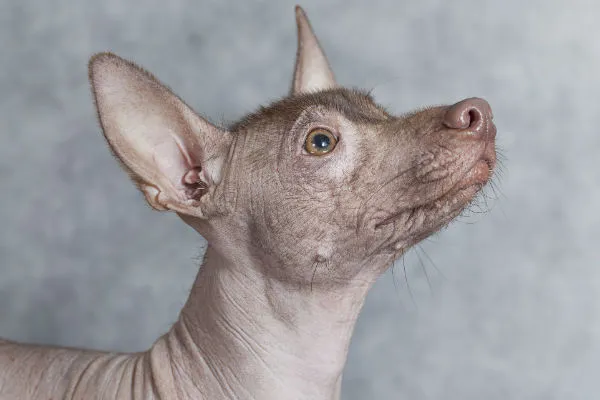 xolo
xolo
Also known as the Mexican Hairless, the Xoloitzcuintli is an ancient breed that can be hairless or coated. Hairless varieties have a small amount of hair on their heads, while the coated variety has a short, fine coat that sheds minimally. Hairless Xolos require extra skin care.
Yorkshire Terrier
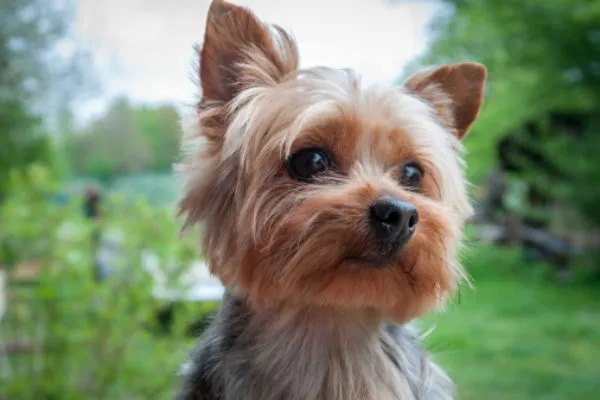 yorkie
yorkie
Sprightly, tomboyish, and affectionate, the Yorkshire Terrier, or Yorkie, is a toy breed full of personality. Yorkshire Terriers do not shed, and their silky coats are beautiful when brushed out daily.
Choosing the Right Non-Shedding Small Dog for You
While these breeds are known for minimal shedding, remember that “non-shedding” doesn’t mean “no maintenance.” All dogs require some level of grooming. Consider your lifestyle and commitment to grooming before choosing a breed.
Important Considerations
- Allergies: While these breeds are often recommended for allergy sufferers, individual reactions can vary. Spend time with a dog before bringing it home to see if you have any allergic reactions.
- Grooming: Non-shedding breeds often require more frequent grooming to prevent mats and skin problems.
- Health: Purchase your puppy from a reputable breeder who screens for genetic health issues.
- Diet: Feed your dog a high-quality diet to keep their coat healthy and shiny.
- Veterinary Care: Regular checkups with your veterinarian are essential for maintaining your dog’s health and well-being.
By carefully researching and considering your lifestyle, you can find the perfect small, cute, and low-shedding dog breed to bring joy to your home.
